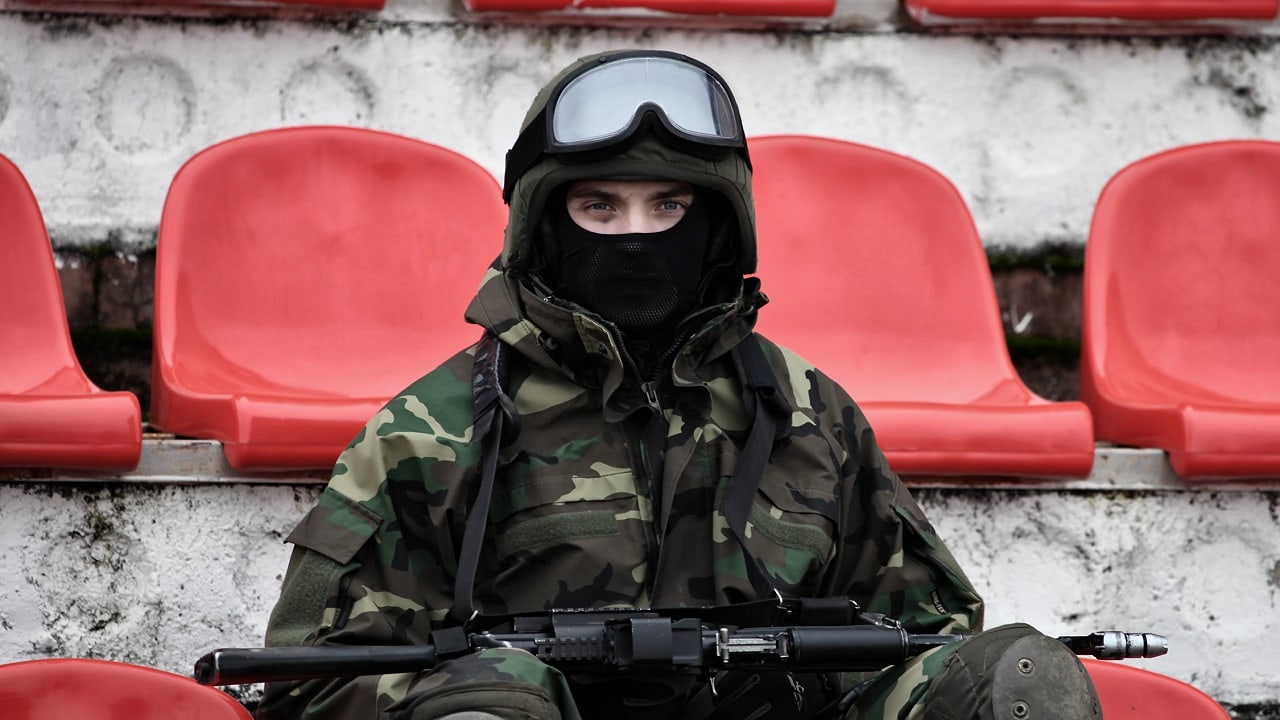Vladimir Putin’s war against Ukraine has not gone well. In fact, it has been a strategic communications nightmare for Russia.
Take, for example, the Kremlin’s penchant for lying. Functional relationships are based on trust, and Russia’s word is clearly worth less than nichevo – nothing at all.
Putin’s spokesperson, Dmitry Peskov, assured the world on February 6th that “Russia is not going to attack anyone.” Russian Foreign Minister Sergey Lavrov stated on February 17th that “there is no ‘Russian invasion’ of Ukraine.” Russian Ambassador to the U.S. Anatoly Antonov insisted on February 20th that “there is no invasion and there [are] no such plans.”
The very next day, Putin recognized two regions in Ukraine as “independent” and dispatched Russian forces to “perform peacekeeping functions.” And on February 24th, Russian forces launched a full-scale invasion of Ukraine, despite having “no such plans.” Kremlin statements are about as reliable as the Ruble.
Since the invasion, Russia has failed to gain narrative dominance. Few in the Free World are buying Putin’s rationale for the invasion, e.g., phony threats from NATO, historical grievances against Ukraine, and perceived humiliations from the West. His February 24th invasion speech was not even intended to persuade. Instead, by noting that Russia “remains one of the most powerful nuclear states,” he sought to intimidate and frighten the United States, NATO, and the EU from responding with force.
Kremlin planners thought Ukraine would quickly fall, and then the world would move on. Former deputy Russian foreign minister Andrei Fedorov said that Putin’s initial order was to “complete the military operation with a victory by March 2.” U.S. officials feared the worst, offering to evacuate Ukrainian President Volodymyr Zelensky—an act that would have hastened a Russian victory. But Zelensky declined, saying “the fight is here; I need ammunition, not a ride.” This raw courage has electrified the Ukrainian people and drawn global admiration.
Ukraine is rightly viewed as the victim of aggression from a bullying neighbor. The world understands that Putin cannot satisfactorily explain why he invaded. And as the war drags on, the Kremlin must also explain why its forces have not won.
Russia also failed to gain information dominance via a cyber assault that would destroy Ukraine’s internet and electrical infrastructure. Further, it clumsily attempted a disinformation campaign to imply defeat was inevitable, given its past military successes. Media-savvy Ukrainians, however, responded by flooding traditional and social media with compelling, first-person accounts and visuals emphasizing their measured confidence, patriotism, and bravery.
Zelensky’s adroit use of digital diplomacy includes updates given in Army t-shirts, images of him eating with his troops, and constant posts to Twitter from his personal account as well as the official Government of Ukraine account. Similarly, Kyiv mayor Vitali Klitchko and his brother, Wladimir—both boxing champions and outspoken critics of Putin—have themselves taken up arms and created compelling images and video appeals. In a Sunday Associated Press interview, the mayor noted the challenges of thousands of volunteer civilians taking up arms. “That’s why the message for everyone is support Ukraine together… we are strong,” he said. “Every Ukrainian is proud to be independent, proud to be Ukrainian, and we are proud to have our own country.”
Viral TikTok and Instagram posts include the former Miss Ukraine, Anastasia Lenna, answering the call of duty with an assault rifle, tagged with #standwithukraine and #handsoffukraine. In another video, she shoots paper targets with the caption, “The invaders will die on our land.”
Pravda brewery in Lviv, famous since 2015 for its “Putin is a d*ckhead” beer, has switched to producing Molotov cocktails with the same label. Other viral posts include a Ukrainian man calmly removing a mine with his bare hands while smoking a cigarette.
Social media offers a direct view of clashes between Russian and Ukrainian forces, including footage of damaged Ukrainian apartment buildings, drone strikes on Russian columns, outraged Ukrainian citizens, and demoralized Russian POWs. We see ordinary citizens gather to personally repel the invaders, and Ukrainian soldiers making direct appeals to Russian soldiers to abandon their mission.
The Kremlin has not been as skillful, preferring a virtual information blackout about the stalled offensive and mounting Russian casualties. The Ukrainian government exploited this by setting up a website and hotline to help Russian families identify relatives who may have been captured or killed in the conflict. It took until Sunday for the Kremlin to admit even vaguely that there had been any losses.
Russia has also failed to maintain cybersecurity at home. On Saturday, six Russian government websites were brought down, including the Kremlin’s official website. This came after a request from the Ukrainian government for volunteers from the hacker underground.
So, in the battle of narratives, the world sees Russia as an international aggressor state, captive of Putin’s crazed ambitions, sending confused, demoralized troops on a failing imperialist mission. By contrast, the Ukrainian story is one of regular people acting with breathtaking courage to defend their homeland and the right to determine their own future. Both narratives have the added benefit of being true.
Elizabeth Robbins joined the American Foreign Policy Council as a Senior Fellow in National Security Studies in December 2021. A strategic communications expert known for making difficult concepts understandable, she previously served as Deputy Assistant Secretary of State in the Bureau of Global Public Affairs. While at the State Department, she led public diplomacy and public affairs communications campaigns on a number of issues, most notably the expanding malign influence of the Chinese Communist Party (CCP). Before that, she served as the national Director of Communications for the American Israel Public Affairs Committee (AIPAC) where she drove the national policy debate by condensing the 2015 Iran nuclear negotiations into a simple, comprehensive framework: “Five Requirements of a Good Deal.”

